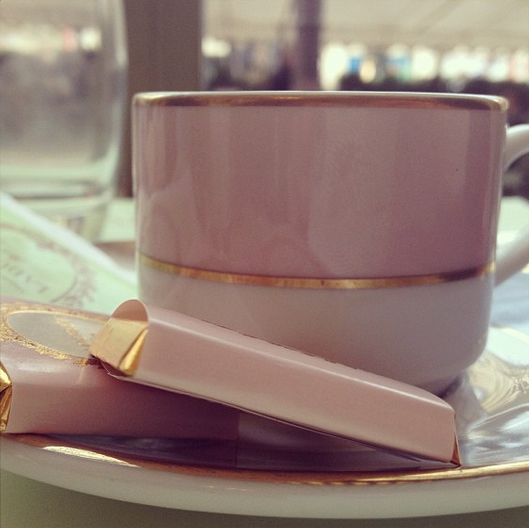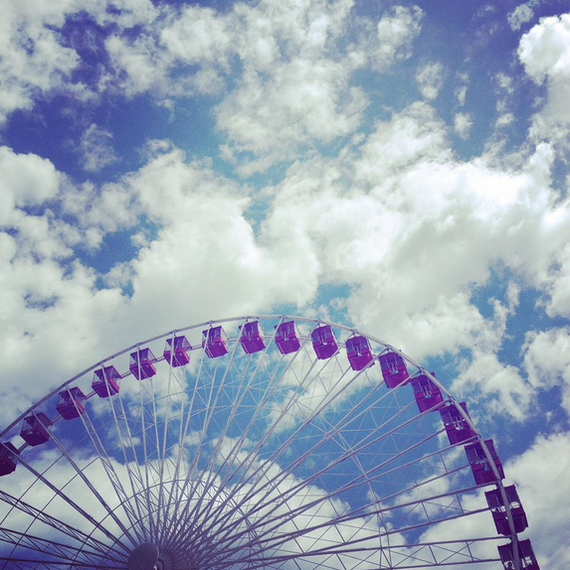Men go abroad to wonder at the heights of mountains, at the huge waves of the sea, at the long courses of the rivers, at the vast compass of the ocean, at the circular motions of the stars, and they pass by themselves without wondering.
- Saint Augustine
It is four in the afternoon somewhere, and once a day, that somewhere is London. I acknowledge the passing moment with a cup of tea by the window of an elegant, cream colored hotel room. The sun streams gently through the translucent curtains. I sip my tea and admire the scenery.

© 2014-2015 Yara Zgheib All Rights Reserved
The room itself is a transcendence of time and time zones: impeccably laundered sheets, a pair of fluffy white bathrobes and matching slippers in the closet, chocolates on the pillow, peanuts in the minibar. It is four in the afternoon, and I could be anywhere.
For a second, I imagine I am in London. But one whiff of my tea, and I know I am not; I would not be sipping jasmine tea in London.
If I were in London, my tea would be loose, black, perhaps with a shot of milk. If I were in Dublin, it would be a shot of whiskey. In Lhasa, salt and Tibetan yak butter. Tapioca pearls in Taipei, cardamom and saffron in Kuwait. The floating leaves would be wild and white in Darjeeling, matcha green in Tokyo, rooibos red in Johannesburg, yellow in Changsha. If I were in New York, there would be no floating leaves at all. My tea would be tepid, pale, and sweet, contained in a bag with string. I would drink it in three cups in Nouakchott: bitter, lightly sweetened, sweet. In Rome, I would not drink it at all.
Some things are universal: bathrobes in a nice hotel room, peanuts in the minibar, the certainty that any day, every day, anywhere, everywhere, it will be four in the afternoon once. Others get lost in translation at border control: tea, humor, time, food, dress.
And some things are simply not translatable at all. Waldeinsamkeit: (German) solitude, being alone in the woods and connected to nature. Sobremesa: (Spanish) the conversation that extends after a meal. Komorebi: (Japanese) sunlight filtering through the trees. Mångata: (Swedish) the glimmering, roadlike reflection of the moon on water.
Dépaysement.
(French) the feeling of being displaced from one's origin. A sense of foreignness. Dé - the opposite of. Pays - country, home.
The closest English equivalent is probably the term culture shock, but I find the word too mild. Dépaysement is more than a shock; it is a culture storm. It is July snow in the Andes and monsoon rain in Bangkok. Clouds over Amsterdam and fog over London (although when is there not fog over London?). Sun and sudden showers in Budapest and Beijing, flash floods in Balochistan and droughts in California.
Flowery summer skirts and high heels in Beirut, and a few extra sweaters for the layover in Geneva. An umbrella in both Manila and Edinburgh (though their rains are not the same), and a sun hat in Barcelona. A head scarf in Cairo and Istanbul, a neck scarf in Chicago.
Sacred cows in India, hot dogs in the United States. Pho noodles for breakfast in Vietnam, picci marinara for dinner in Italy. Sugared avocado in the Philippines, guacamole in Mexico. Fried duck necks in China, foie gras in France.
That, is dépaysement.
There are those who, in the face of a culture storm, learn to weather it. With a focus on self preservation, they fill their suitcases with instant coffee packs for Bombay, and powdered creamer for Paris, then stir those into cups of boiling water as they admire the scenery from behind the air-conditioned window panes of their universally cream colored hotel rooms.
Then there are those who fear the untranslatable, but seek it anyway. Those brave enough to step out of the hotel room and experience both waldeinsamkeit and sobremesa, komorebi and mångata. Those who do not weather the storm, but dance in it, walking around bustling streets past midnight in a sleepless New York, then sipping coffee in a sidewalk café on a misty morning in Paris. Waiting for an 8:30 train that will arrive on time in Switzerland, ten minutes late in Italy, fifteen in Turkey. Eating fries in a cone in Belgium, with vinegar in England, mayonnaise in the Netherlands, gravy in Canada, garlic and seaweed in Japan. Embracing a change of scenery.
"A ship is safe in harbor, but that is not what ships are for," but I digress. My tea is now cold, and I really must pack.
It is nine in the evening somewhere, and at least once a day, that somewhere is Paris. I acknowledge the passing moment by pouring a glass of Pinot noir and swirling it thoughtfully as I stare at the expectant suitcase sprawled on the inviting bed. I make a silent toast.
To getting lost without losing oneself. To all that is different, and all that is universally the same. To a change of scenery.
It is nine in the evening, and I could be anywhere. I could go anywhere.
This post was originally published here, on the author's blog: Aristotle at Afternoon Tea.
